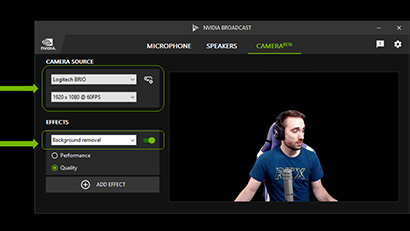

The flashing didn't increase performance it allowed you to use Quadro certified drivers which are available now for Geforce (minus the official certification and support iirc) too (i think they are called creator drivers or something like that). Since the fallback could be a drain on performance, battery, heat, noise, safety, and last but not least user experience, it's pretty understandable why some products have features disabled, especially when the features were developed after the product was released, right?

There are good and legitimate reasons why products turn features off, especially when the features were designed for specific hardware, with specific specs in mind, and work best with specific hardware support. (Of course I have no idea what you do or who you work for, just making the point that hidden features are so common, the odds of me guessing right are quite good.) Since you're on HN, there's a reasonable chance that the company you work for releases a product with "artificially limited" features. Unless you're driving a 30 year old car, it's probably true that your car has features turned off that are meant for other models.
NVIDIA BROADCAST APP GTX SOFTWARE
Your phone and your computers all have software feature toggles for features meant for future hardware. You know that all products with any electronics in them do this, right? It's not an Nvidia thing by any stretch of the imagination. > Also it's NVidia, all of the home grade cards are artificially limited by drivers. Hopefully we'll now see plenty of disruption and innovation (and modding )). It just seems like a slow and painful realisation for parts of the industry that things have changed. Warranties for practically every type of durable product existed before these changes were introduced, and people have always tended to weigh up the projected lifetime (which they can infer from factors such as the availability of manufacturer or third-party warranties or insurance), manufacturer reputation and projected total costs of ownership whenever they have bought something sufficiently expensive.Īgriculture is of course an important industry, but I don't think there's any wider threat to agriculture in this particular case, and if these practices were to create one in the future, the market would respond by punishing a company like JD (and no doubt the state would as well in light of the strategic implications). It means that they can't even buy the same product together with an optional warranty from the manufacturer, thereby ending up with a situation that's functionally identical.
NVIDIA BROADCAST APP GTX FREE
I disagree with the idea that free markets need guardrails for the reasons that I mentioned before: I believe that consensual agreements between people shouldn't normally be regulated by the state, and that when you take a free market and then add "guardrails" to it, it's no longer a "free" market.Īll that minimum warranty legislation does is to remove the freedom that people previously had to buy products with shorter warranties, or without one. If you can't imagine not using their products after the next refresh, you've put yourself in a very poor negotiating position. I'm just cynical about how often people will knowingly make themselves reliant on a single company without reading through the small print or thinking through the implications of what is essentially entering into a long-term strategic partnership with a vastly unequal partner without a having a hedging strategy. It's also a bit like the Creative sector when Adobe moved to a subscription model people balked and held out for a time, but ultimately they voted with their wallets and bought the magic product that could be provided by only one company on Earth, and without which they couldn't possibly continue to make art-work. JD have competitors, and I'd imagine that if this episode hasn't tanked their business it's due to risk-aversion from buyers (à la IBM), vendor lock-in, or customers being set in their ways. In either case you're paying a premium for the name and the associated service contract for a time-sensitive mission-critical locked-down (and to some extent black-box) function which is presumably crucial to your business's ability to generate revenue. I don't really see too much of a difference between buying a tractor from John Deere and buying a fancy SAN from Oracle. Industries are being computerised, so it's not too surprising that business practices are bleeding over.


 0 kommentar(er)
0 kommentar(er)
